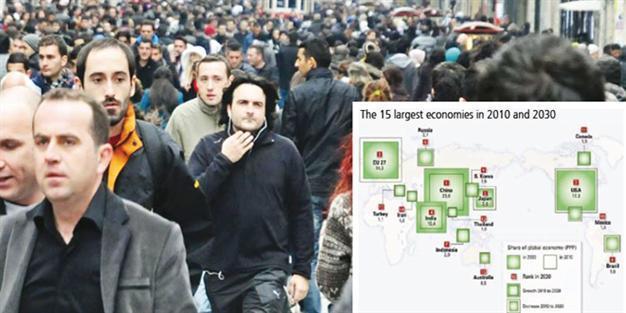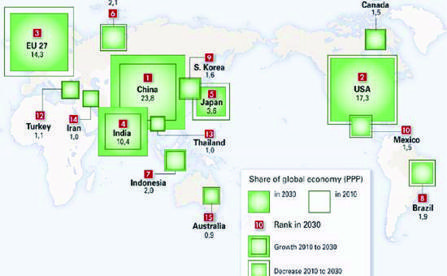Turkey may be regional power, out of EU in 2030
ISTANBUL

Turkey will maintain and even bolster its status as a medium-sized power in demographic, economic, territorial and military terms as of 2030, says the report. DAILY NEWS photo, Hasan ALTINIŞIK
Turkey is likely to become a pivotal regional power by 2030, but it is not clear whether it will be a European Union member by that date, according to a recently released report conducted by the European Union Institute for Security Studies (EUISS) upon a European Parliament request.“Turkey is likely to become a pivotal regional power. Turkish citizens, capital and institutions will continue to integrate with the global economy and network society; and ties with the EU and Turkey’s immediate neighbors and other regions will become deeper and denser,” said the Global Trends 2030 report, released on April 27. The report looks at the impact of an increasingly empowered global citizenry on the international system and is produced for the European Strategy and Policy Analysis System (ESPAS).
Turkey’s global role depends on its ability to pursue its interests within international groups and by membership of inter-state organizations such as NATO, the G20, the Organization of the Islamic Conference (OIC), and by eventual accession to the EU, said the report. However, it also said it was “difficult to predict whether Turkey will join the EU by 2030 as there are both push and pull factors are work.
“The division of Cyprus could be mitigated by greater convergence between Turkey and the EU, but the difficulties attending the process of enlargement to Turkey may persist and render the solution to the Cyprus question more problematic,” the report stated.
The report recommended that Turkey balances its recently-discovered role in the Middle East by awareness of its relations with the EU, the Balkans, the Black Sea, Russia, the Caucasus, Central Asia, the Mediterranean and the U.S., as well as its evolving and newly-emergent links with the rest of Asia, Africa and the Americas. The report said Turkey may want to work with different countries “to further its interests in the Middle East,” but stressed that this was “unlikely to become an alternative to EU integration.”

Turkey to bolster its power
Current trends suggest Turkey will maintain and even bolster its status as a medium-sized power in demographic, economic, territorial and military terms, said the report, but it also urged the country to address key weaknesses in order to be able to pursue this position, “including Kurdish and Armenian claims and rights issues, energy dependency, an environmentally unsustainable development model”
In 2030, there will be no single hegemonic world power, but the U.S. and China will be the most influential actors, according to the report. It also predicted an economic power shift toward Asia, with China projected to be the largest economic power with a 19 percent share of total world gross domestic product (GDP) and India continuing to rise. However, Russia and Japan will lose the great power status they enjoyed in the 20th century, the report said.
The U.S. is likely to remain the world’s major military power, but Chinese military capabilities are very likely to increase. A group of rising middle powers, including Indonesia, Turkey, and South Africa, will become ever more prominent, the report said.
With regard to social media, the report said its use was growing everywhere. “Indonesia has experienced the fastest rate of development, and Turkey now accounts for the third highest number of Facebook users after the U.S. and the U.K.” In the OECD, the richest ten percent earned nine times as much as the poorest ten percent of the population. This income gap is particularly pronounced in Mexico and Chile but also in Israel, Turkey and the U.S.
















